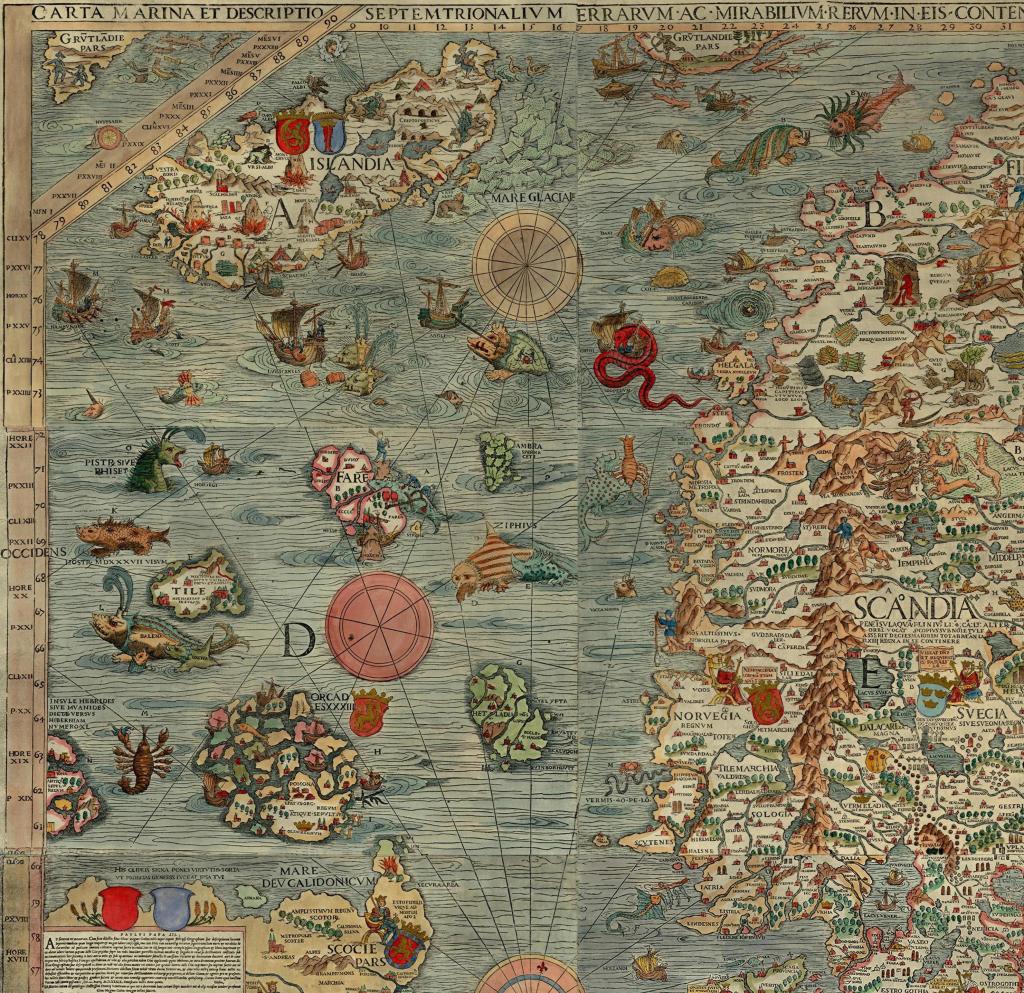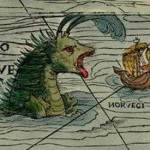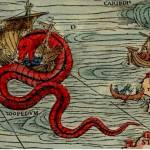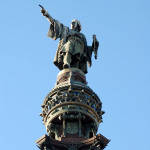Why some cultures become great explorers and others stay home: the role of metaphysics.
“And as for trying to sail down the west African coast, everyone knew that as soon as you passed the Canary Islands you would be in the Mare Tenebroso, the Sea of Darkness:
‘In the medieval imagination [writes Peter Forbath], this was a region of uttermost dread … where the heavens fling down liquid sheets of flame and the waters boil … where serpent rocks and ogre islands lie in wait for the mariner, where the giant hand of Satan reaches up from the fathomless depths to seize him, where he will turn back in face and body as a mark of God’s vengeance for the insolence of his prying into this forbidden mystery. And even if he should be able to survive all these ghastly perils and sail on through, he would then arrive in the Sea of Obscurity and be lost forever in the vapors and slime at the edge of the world.’”


Or as visualized in these late medieval map images of the northeastern Atlantic Ocean and Scandinavia: Monsters be there.
If reality is dominated by malevolent forces out to get anyone who takes a risk, then one plays it safe and hopes not to attract their attention. If, by contrast, reality is exciting and inviting — and one is confident of one’s ability to meet its challenges — then one goes forth with a sense of adventure.

Disasters happen, and some cultures let those sink them into oblivion, while others recover quickly and continue to grow. Or achievements happen, and some cultures shrug them off as matters of luck while others celebrate and build upon them.
So some questions: How do cultures acquire and propagate come to believe metaphysical attitudes of fear or adventuresomeness? What role do religious sermons, bedtime stories, theatrical performances, journalists and historians play?
Or aphorisms: “Play it safe” versus “Go for it,” “The gods are angry with us” versus “The majesty of creation,” “Curiosity killed the cat” versus “Nothing ventured, nothing gained,” “The bogeyman will get you” versus “Just do it,” and so on.

An individual decides to accomplish something. He then communicates or otherwise inspires others with his accomplishment. The implicit or explicit message is that reality is a place where things can be accomplished. Others emulate, tell the story to others, or are motivated to pursue their own dreams, and a culture of achievement develops.
Or: An influential individual frightens or otherwise induces others to be passive with the message that reality is inhospitable and threatening. Parents and other storytellers pass the message along, and a culture of small dreams and inaction develops.
[Sources: The long quotation is from Adam Hochschild, King Leopold’s Ghost (Houghton Mifflin Company, 1999), pp. 6-7. The “Carta Marina” image is from Wikipedia. The Columbus monument in Barcelona image is from here.]
Related: Metaphysics and art — Professor Hicks’s lecture at ESEADE University Buenos Aires: